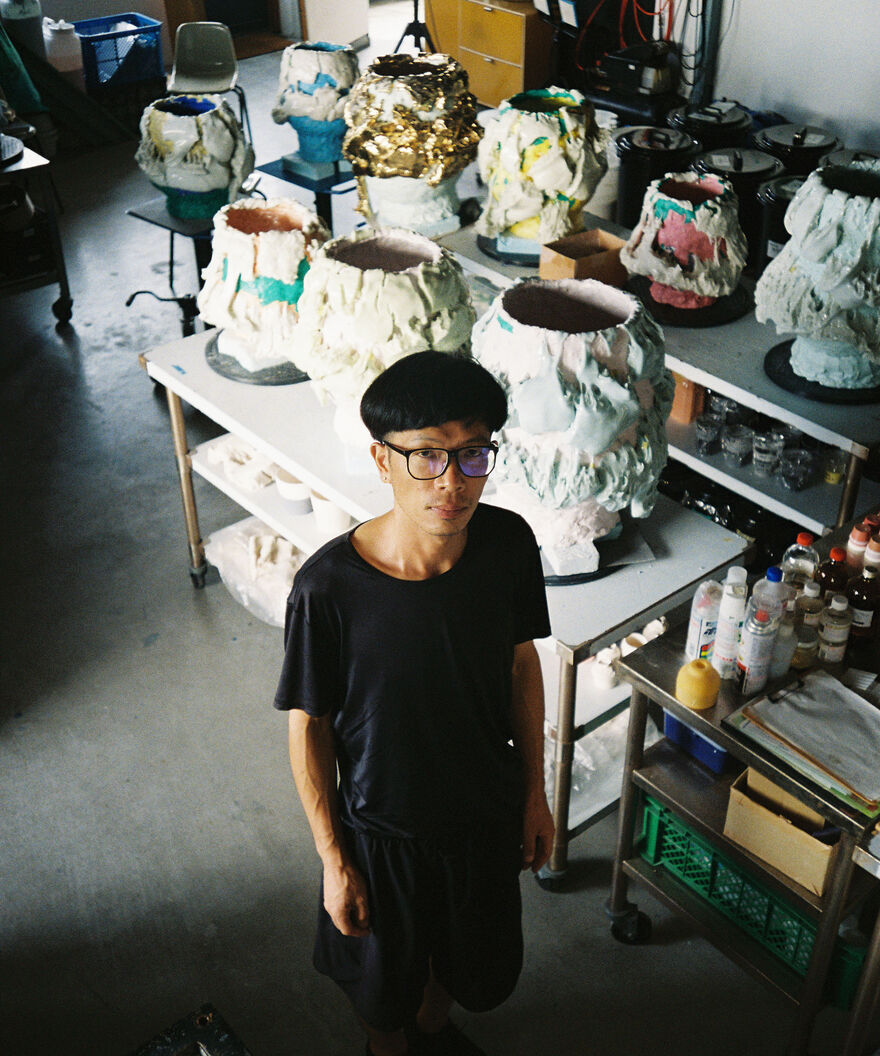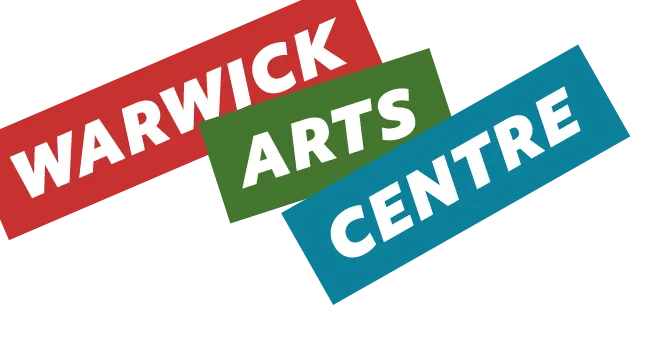
Gallery Talks - Call Out
Gallery Talks are a new initiative to connect academic speakers with the Mead Gallery’s exhibitions and themes.
You’ll present a succinct, accessible public facing talk of 15-20 minutes which enlivens themes in the exhibition and your own research. Talks will run over lunchtime, so we are anticipating a student and staff audience, but they will be open to all and assume no prior knowledge.
Overview
Dates
Flexible - there will be 2 x talks in Spring term and 2 x talks in Summer term
Times
12.30 - 12.50pm (plus 15 min set up)
Target Audience
Adult audience including students and staff of University of Warwick, and community members (approx 15 - 20)
Venue
Mead Gallery, Warwick Arts Centre
Practicalities, Needs and Considerations
Talks should be open to all and accessible to all, assuming no prior knowledge of the artworks you are discussing, nor your own research.
We encourage speakers to home in on one small part of their work and explore this, in relation to one or two artworks. Be aware the time goes very quickly!
You may bring some small props or printed images, but we won’t have access to a projector in the space.
Key Contacts
Thomas Ellmer, Exhibitions Curator - [javascript protected email address]
Tara Tighe, Head of Creative Learning - [javascript protected email address]
Related Programming
For a talk prior to the 15 March, you would be responding to:
Keywords: abstraction, craft, colour, pop-art, cultural synthesis, wabi-sabi, unconventional making processes, explosion
Renowned for his radical approach to traditional ceramics, Kuwata fuses traditional Japanese pottery techniques with bold and experimental sculptural processes. His signature use of vivid glazes, distorted silhouettes, and explosive textures has garnered international acclaim and redefined the boundaries of contemporary ceramics.
Moving away from conventional aesthetics associated with wabi-sabi, a key aspect of Kuwata’s work is his striking use of colour and surface. The artist cites the influence of American culture on his practice, often drawing comparisons to the boldness of American Pop Art. Inspired by the works of artists such as Andy Warhol and Roy Lichtenstein, Kuwata channels the movement’s irreverent energy and colour palette into the refinement of Japanese ceramic tradition. The result is playful, provocative, and unmistakably contemporary.
For a talk from May onwards you would be responding to:
Daiga Grantina & Prunella Clough - title tbc
Keywords: materials & materiality, biomorphic forms, industrial and organic relationships, layering, memory, histories
This exhibition will present contemporary Latvian-born artist Daiga Grantina’s (b. 1985) work alongside British artist Prunella Clough’s (1919-1999) paintings, bringing together two generations of abstraction.
The exhibition will create a rich conversation shaped by materiality, layered textures, and formal exploration. Clough's works unfold through complex layering and reworking, earned via scraping, stenciling, impasto, and mixed media. Her surfaces reveal the residue of time, memory, and method, grounded in the unnoticed urban world, and balanced between abstraction and the physical world. Grantina sculpts in three dimensions, exploring dissonance and consonance in materials: soft and hard, transparent and opaque. Her biomorphic forms evoke micro-and macro-organisms—bodies and landscapes in constant transformation. Her installations ripple with intuitive processes of self-production and consumption.
Clough’s dense, tactile paintings alongside Grantina’s fluid sculptural forms, suggest a conversation across dimensions and materiality. Both artists employ repetition, layering, and call for close looking. Together, their works invite a contemplative encounter: an immersive reflection on how abstraction can emerge from the everyday - industrial, organic, overlooked - and how materials themselves carry histories, textures, and poetic resonance.
Brief
We are opening up our galleries for a series of talks led by our brilliant academic colleagues at the University of Warwick. These talks aim to respond to, connect with and explore themes in our exhibitions, via new perspectives, and through a variety of specialisms. We welcome anyone interested in delivering a talk to put forward their ideas, whether you have an arts background or not.
No matter how complex, our colleagues can support you to deliver your talk in an engaging and cogent way. We suggest the allotted time would include:
• 3-minute introduction to self and research
• 10-minute core discussion to include overview of work, your interest and relationship to research
• 2-minute conclusion
• 5 minutes for any questions
Speakers from non-arts disciplines with different research interests support us to develop audiences’ understanding of visual art and how it connects to the wider world. We believe strongly that the arts can be a crucible for all disciplines and beliefs to coalesce. The aim is to provide a space for University of Warwick academics to share their research through visual art with the general public and develop a cross-disciplinary exhibition interpretation.
Please note, we will not have a screen for slides, nor microphones for this programme – you will be delivering your talk in front of the relevant artwork, or artworks. We welcome you to bring dry props if this feels it will relay your talk to a broader audience. We are unable to bring anything into the gallery that might cause damage to the artworks, such as wet materials or chemicals.
Other Information
We would be very happy to review a draft or host a call to discuss your content prior to the talk. We would also encourage a run through, remotely or in person ahead of the day, once the content has been outlined and developed, so that we can support you in reaching new audiences.
Our colleagues at the Warwick Institute of Engagement, also host a number of development opportunities for engaging and communicating academic topics to new audiences.
How to Register Interest
Send a short expression of interest to Tara and Thomas. This should be maximum 250 words exploring links between your own research and the show, along with the exhibition you’d like to respond to.
Please send your EOI by Monday 6 October, 5pm. If you have any questions ahead of submission, please do not hesitate to contact us.
